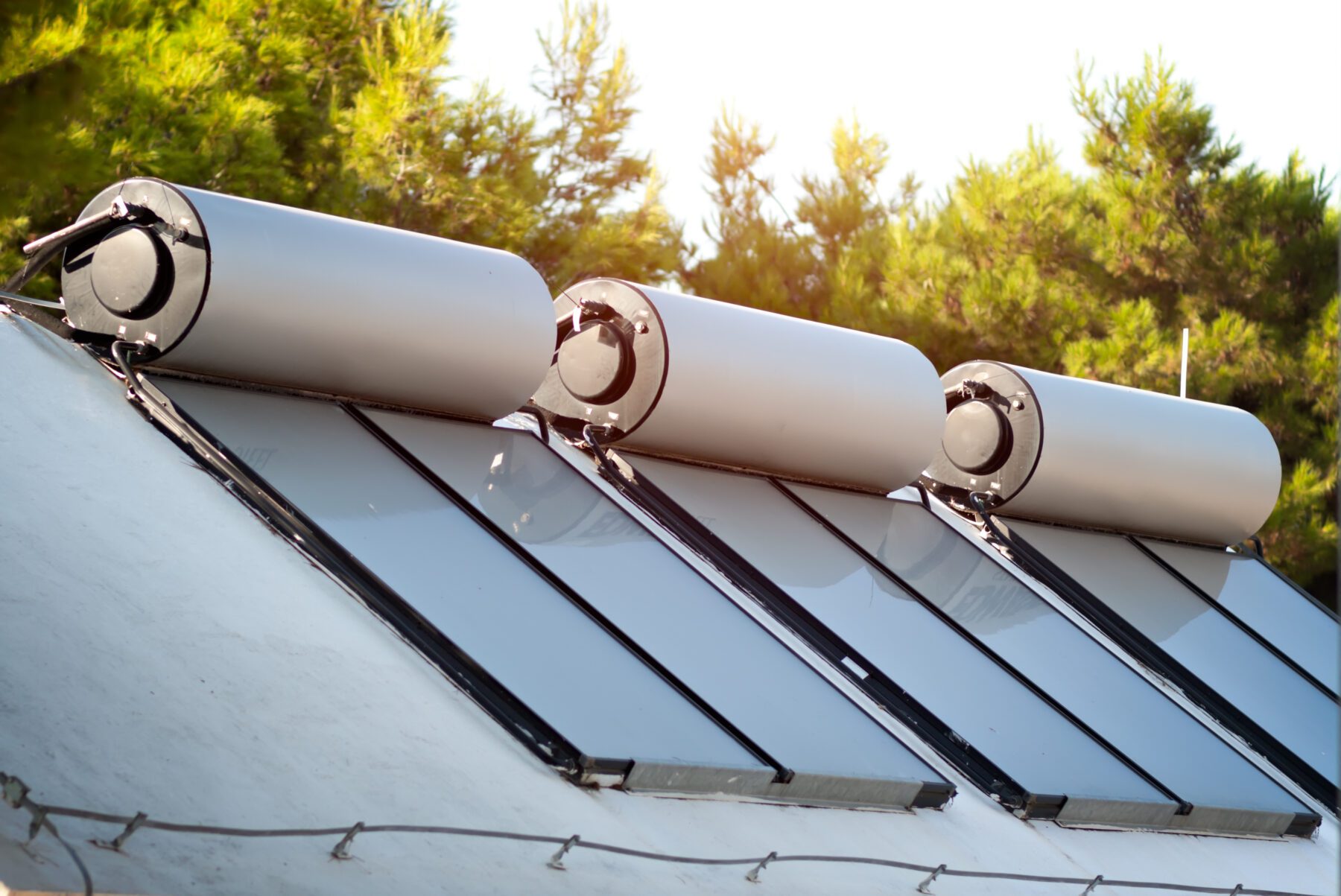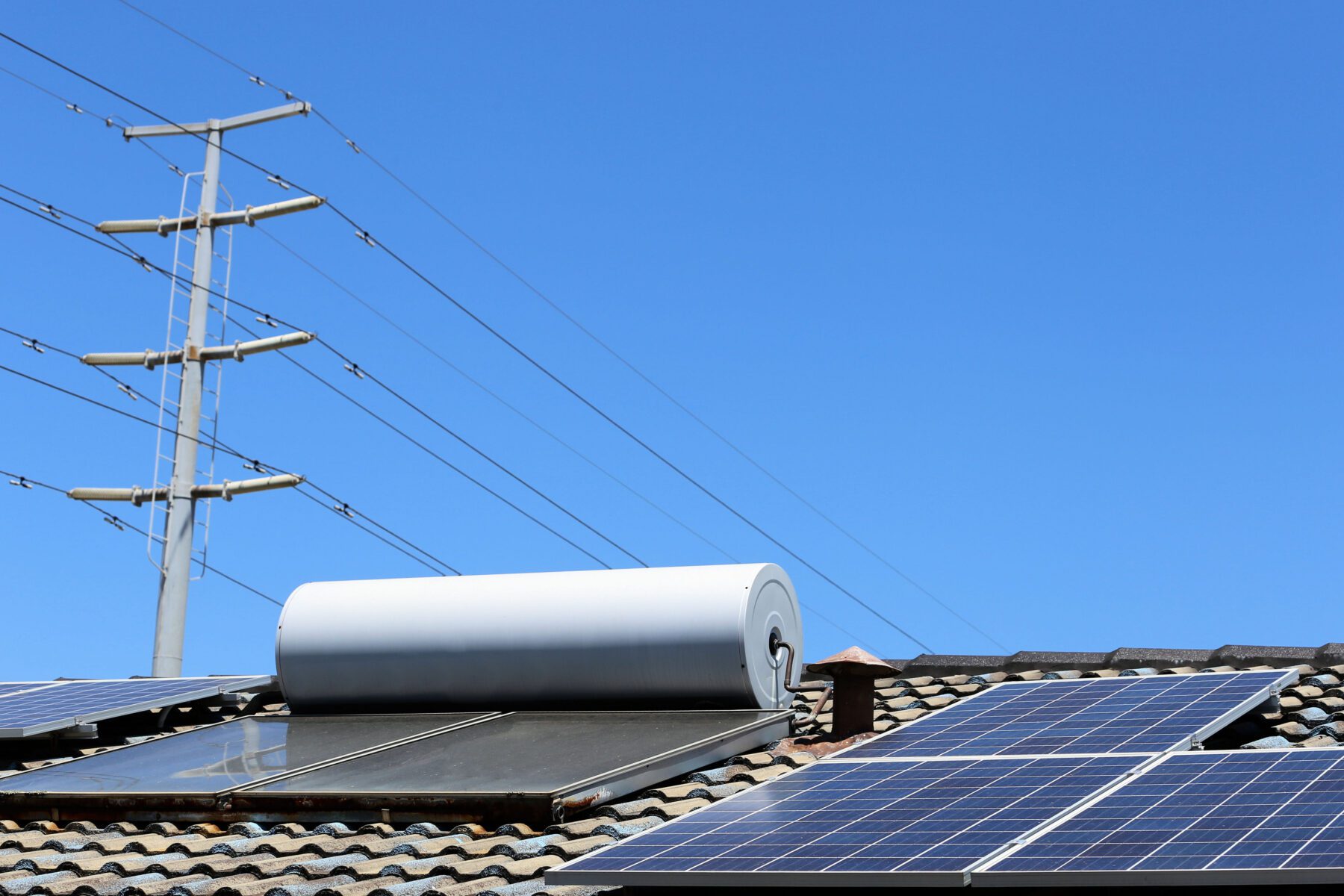
SOLAR WATER HEATER MANDATE
Pursuant to HRS §196-6.5 no building permit shall be issued for a new single-family dwelling that does not include a solar water heater system that meets the standards established pursuant to section 269-44, unless the chief energy officer of the Hawaii state energy office approves a variance.
IMPORTANT NOTICE
Aloha!
To improve accuracy, consistency, and fairness in the Solar Water Heater Variance (SWHV) review process, the following updates have been implemented:
Questions or Support
If you have any questions or experience issues with the new workbook, please contact the Hawai‘i State Energy Office at [email protected].
the BASICS OF hawaiʻi’s SOLAR WATER HEATER MANDATE
What is the Solar Water Heater Mandate?
By statute, any new single-family dwelling built in the State of Hawai‘i must have a solar water heater. This law applies to accessory dwelling units (ADUs) and similar single-family dwellings. It does not apply to duplexes, triplexes, condos, or other multi-family dwellings. The law states that solar water heater systems are required for new single-family residential construction.
On or after January 1, 2010, no building permits are issued for new single-family dwellings that do not include a solar water heater system that meets the standards established by the state, unless the chief energy officer of the Hawai‘i State Energy Office approves a variance. Variance applications are only accepted if submitted by an architect or licensed mechanical engineer who attests that:
- Installation is impracticable due to poor solar resource;
- Installation is cost-prohibitive based upon a life cycle cost-benefit analysis that incorporates the average residential utility bill and the cost of the new solar water heater system with a life cycle that does not exceed fifteen years;
- A renewable energy technology system is substituted for use as the primary energy source for heating water; or
- A demand water heater device approved by Underwriters Laboratories, Inc., is installed; provided that at least one other gas appliance is installed in the dwelling. For this paragraph, “demand water heater” means a gas-tankless instantaneous water heater that provides hot water only as it is needed.”
The legislature intends that the variances provided for in Act 204, Session Laws of Hawai‘i 2008 (Act 204) will be rarely, if ever, exercised or granted because the burden of proof will lie with the applicant to demonstrate that a solar water heater system, regardless of location or circumstance, is not cost-effective in the context of a 30-year mortgage term.
SOLAR WATER HEATER VARIANCES
If you are considering requesting a “variance” (exemption) from the solar water heater law, your architect or mechanical engineer is required to submit a Solar Water Heater Variance Request to the Hawai‘i State Energy Office. As required by HRS Section 196-6.5:
“(a)… A variance application shall only be accepted if submitted by an architect or mechanical engineer licensed under chapter 464 …
(b) A request for a variance shall be submitted to the chief energy officer of the Hawai‘i state energy office on an application prescribed by the chief energy officer of the Hawai‘i state energy office.”
SUBMITTING REQUESTS USING ONLINE APPLICATION
Architects and Mechanical Engineers
Please use this online application to submit solar water heater variance requests. Pursuant to HRS §196-6.5, only architects and mechanical engineers licensed to do business in the State of Hawai‘i may submit a request for a solar water heater variance.
Required Processing Fee of $25 for Every Variance Request
Each request for a solar water heater variance submitted through the online application requires a $25 payment by credit card or eCheck.
Be sure to complete the online application correctly. Any incorrect or missing information will cause the request to be DENIED.
There are no refunds for denied requests.
The online application allows for easier fee payment and tracking of your variance request. However, if you prefer to submit a variance request using the manual process, see the section below for instructions and links for submitting a request via e-mail, U.S. mail, or hand-delivery.
SUBMITTING REQUESTS USING OFFLINE APPLICATION
Requests submitted via e-mail, U.S. Postal Service, and hand-delivery also require a $25 per request processing fee. For these offline requests, a check in the amount of $25 per request payable to “State of Hawaii-DBEDT” must accompany the variance request or be mailed to:
DBEDT Hawaii State Energy Office
SWH Variance
P.O. Box 2359
Honolulu, HI 96804-2359
One check can cover multiple solar water heater variance requests if they are all submitted at the same time.
Write the Tax Map Key (TMK) number at the bottom of the check.
Note: If a check is not received within 10 business days of the receipt of the variance request or if the check does not clear within 29 business days of receipt of the variance request, the request shall be DENIED.
Be sure to follow directions and complete the variance request correctly. Incorrect or missing information will cause the request to be DENIED.
There are no refunds for denied requests.

OFFLINE REQUEST FORM FOR A SOLAR WATER HEATER VARIANCE
The variance request form has been revised to reflect the new gas demand tankless water heater requirements.
All solar water heater variance requests must use the latest form below. The use of older forms will cause the request to be denied.
Click on the link below for a PDF version of the Request for Variance form. Use this form if submitting a variance via e-mail, U.S. mail, or hand-delivery. Use of older forms will not be accepted and will cause the request to be denied. There are no refunds for denied requests.
Follow the instructions on the form. Incorrect or incomplete forms shall cause the variance request to be denied.
Offline Variance submittal information:
- E-mail: [email protected].
- U.S. Postal Service: DBEDT Hawai‘i State Energy Office, SWH Variance, P.O. Box 2359, Honolulu, HI 96804-2359.
- Hand-delivery: DBEDT Hawai‘i State Energy Office, 235 South Beretania Street, 5th Floor, Room 504, Honolulu, HI 96813. Office hours are Monday-Friday, 8:00 a.m. to 4:30 p.m. Closed on state and federal holidays.
A Life Cycle Cost Comparison (LCCC) worksheet must be submitted with a variance request if selecting Justification #1 (installation of a solar water heater is impracticable or cost prohibitive) or Justification #3 (gas-tankless instantaneous water heater). Instructions to complete the LCCC and an explanation of the LCCC can be found in the links below. Solar water heater variance requests and LCCC worksheets must be signed and stamped by a Hawai‘i-licensed architect or mechanical engineer and sent using the submittal information listed above. If submitting by email, please note “SWH Variance” in the subject box.
The Microsoft Excel spreadsheet used to calculate life cycle costs for solar and other methods of water heating contains formulae that cannot be calculated unless you use the Excel software. Here is the link to the current LCCC:
The chart below summarizes all the requests for a variance from the solar water heater mandate processed by the DBEDT Hawai‘i State Energy Office. It is updated regularly as requests are received and as variances are approved, denied, or not accepted.
MARCH 3, 2021, NOTICE
Anyone considering an application for a variance from the residential solar water heater law should be aware that all five of the following requirements must be met if a gas-tankless instantaneous (on-demand gas) water heater is the selected alternative:
- Approved (certified) by Underwriters Laboratories, Inc. (UL) or other nationally recognized testing laboratory.
- At least one additional gas appliance must be installed in the dwelling.
- The gas water heater must provide hot water only as it is needed.
- The burden of proof will lie with the applicant to demonstrate that a solar water heater system, regardless of location or circumstance, is not cost-effective in the context of a 30-year mortgage term.
- The applicant must be the party who will ultimately pay for the energy cost consumption.
For questions, contact [email protected].
